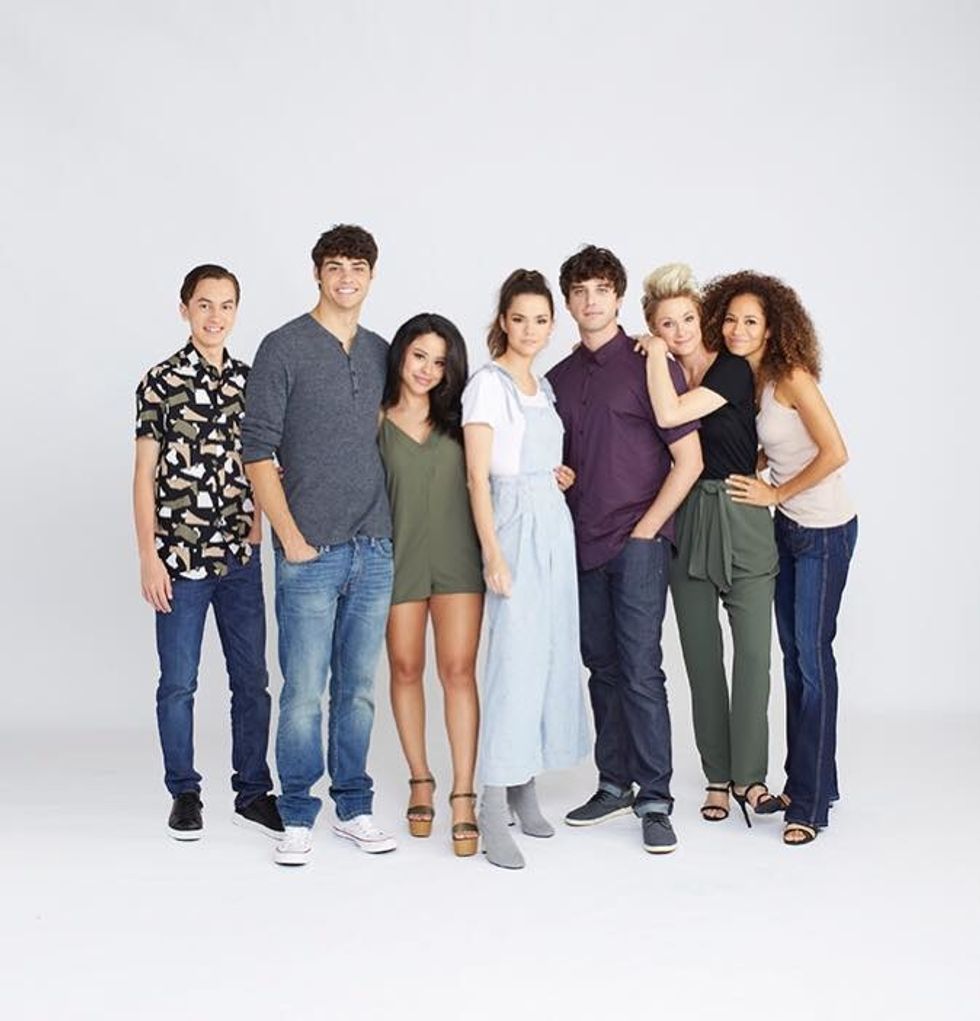In recent years, ideas of non-traditional parenting and family life have become more widely accepted throughout the world. Though there will always be someone in the world to refute this, topics of adoption, foster care and LGBTQ+ parenting are becoming frequent regulars in the conversation, finally bringing them to the light they deserve to be seen in. Until now, they have been acknowledged, but never seriously considered. Luckily, however, the creation of the hit TV show, "The Fosters", on Freeform back in 2013, helped change that.
Telling the story of two mothers who bring together a family through a biological son from a previous marriage, a set of adopted twins and a brother and sister from the foster care system, it has helped viewers see what is possible for a family to be when you become brave enough to step outside the boundaries that society builds around us. In my time watching this series, I have resonated strongly with certain ideas from personal experience, and from this, it has made me admire the fictional family and my own that much more. Even if your experiences are not reminiscent with those of the show, the lessons it has reiterated to me and can teach to you are sure to help you walk through life with a humble, fresh and respectful perspective.
1. A family is always defined by love, never by DNA.

The Fosters-Facebook
Growing up, this lesson was apparent to me from the beginning of my childhood, and the series only made it that much more real to me. All members of the Adams-Foster clan -- Stef, Lena, Brandon, Callie, Mariana, Jesus and Jude -- were not innately born into the family, but rather became part of the family because they were wanted and loved that much. You don't have to look alike or come from the same parents to be a family -- you only need to respect, understand and love one another unconditionally. I was placed with the family that was meant for me, because, as Kari Kimmel put it best, "It's not where you come from, it's where you belong."
2. Adoption and Foster Care were, and still are, incredible ways to form a family.
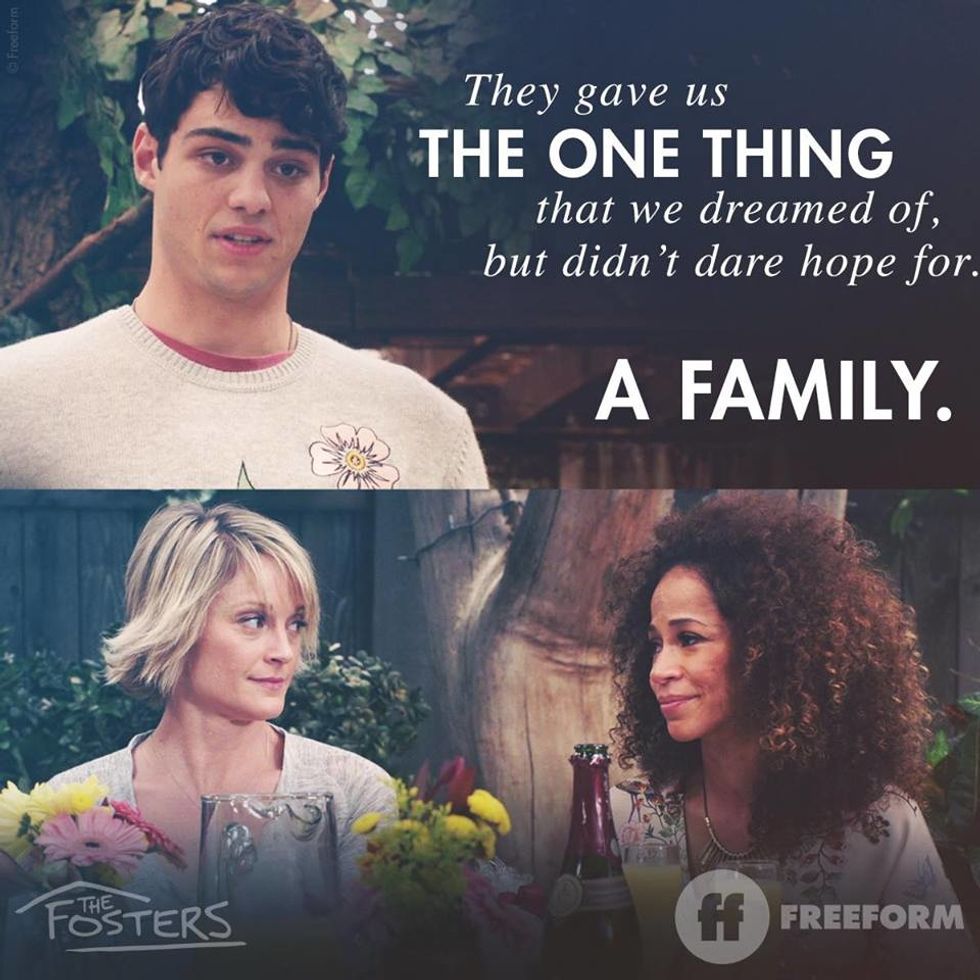
The Fosters-Facebook
Earlier, I spoke on how this series connected to me through personal experience, and this is due to the fact that I am adopted myself. In the series, twins Mariana and Jesus go through all the highs and lows that accompany adoption. I felt their emotions onscreen in my heart due to the fact that I understand what those times of joy and sorrow feel like through a first-hand account. However, it is still one of the most meaningful and beautiful ways to begin a family, and a sure way for a child to feel that there was a higher power guiding them towards what was the best in store for their lives.
3. Your "real" parents are the ones who raise you, not the ones who give you life.
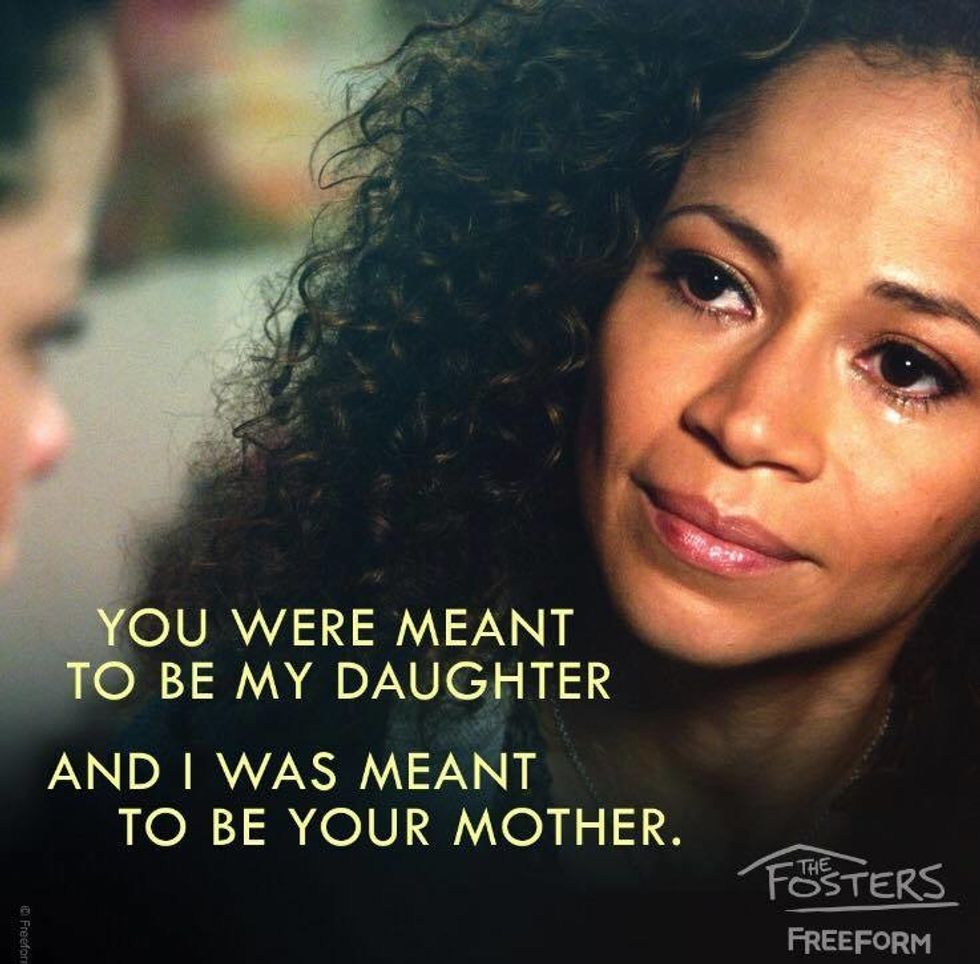
The Fosters-Facebook
Growing up, when I would explain to my classmates that I was adopted, some would ask me, "Do you know your real parents?" To this, I would respond to them that my adoptive mom and dad are my real parents because they are the ones who raised me, and that I didn't know anything about my birth parents. This type of confusion and need for explanation is apparent in the series as well. Mariana is seen to struggle with accepting her birth-mother as the woman who gave her life, wishing that Lena or Stef could have done so; but she is reassured that who she came from is not a defining factor of who she was, is or will be because her mothers have taken on that task of being her parents and raising her to become the best version of herself.
4. Multi-ethnic families teach respect, camaraderie and love.
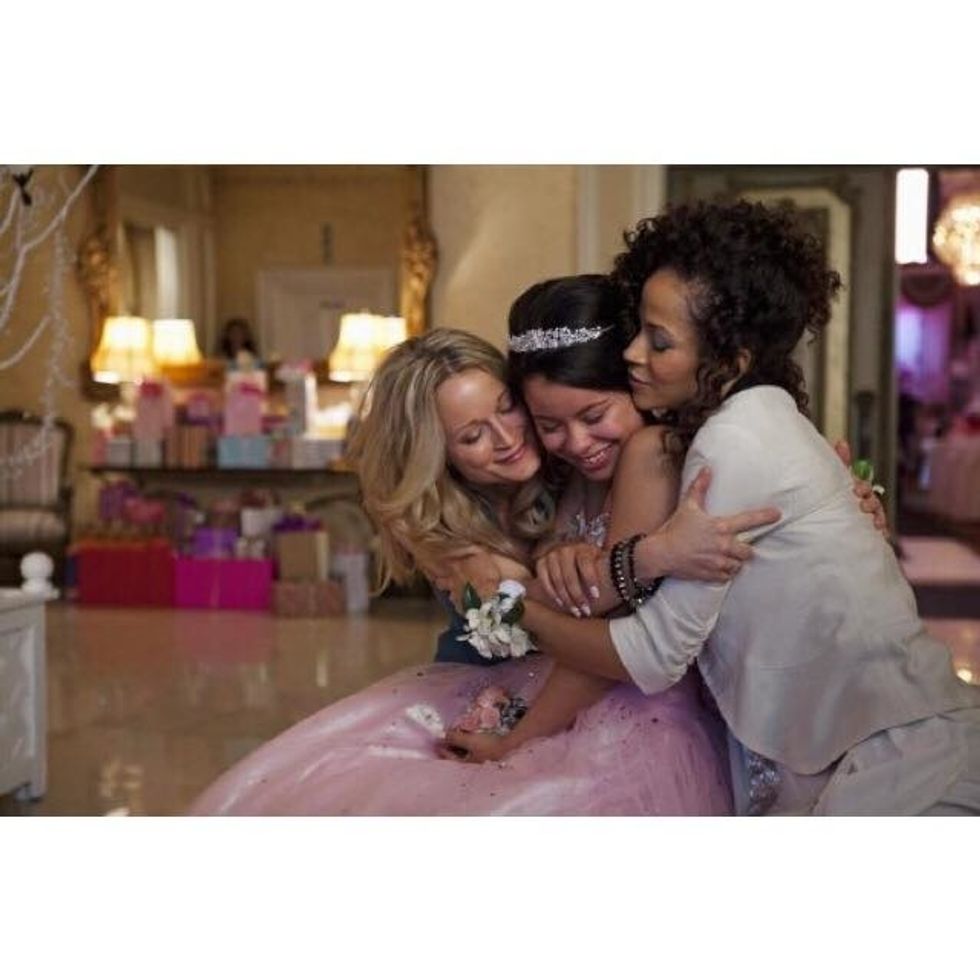
The Fosters-Facebook
The Adams-Foster family is no replica of an "American Dream" family, and neither is mine. I personally have several ethnicities as part of my family, including Paraguayan, Jamaican, Chinese, Norwegian and Swedish. The family in this series includes diversity through Lena being biracial and Mariana and Jesus being Latino/a. Their fellow family members are definitely depicted as being eager to celebrate cultures of origin, especially when they all pitch in to celebrate Mariana's quinceanera, a traditional coming-of-age ceremony for 15-year-old Latina girls. I have also personally attended quinceaneras for both of my older sisters, and this experience prompted me to enhance my cultural understanding, celebrate our differences and be better together because of them.
5. It's OK to want to know your background.

The Fosters-Facebook
A big part of being adopted is the insatiable desire to want to know your story. Where did you come from? I searched for the answers endlessly, and some of the answers were hopeful and encouraging, others heart-wrenching. Mariana, Callie and Jesus all search for their answers throughout the series, often presented with a lot of difficulty and pretty raw deals. However, peace soon prevails, as I found it, and you realize that despite how amazing it can feel to daydream about the day you finally get those answers, it does not always end like a fairy tale.
6. Manage your expectations of people.
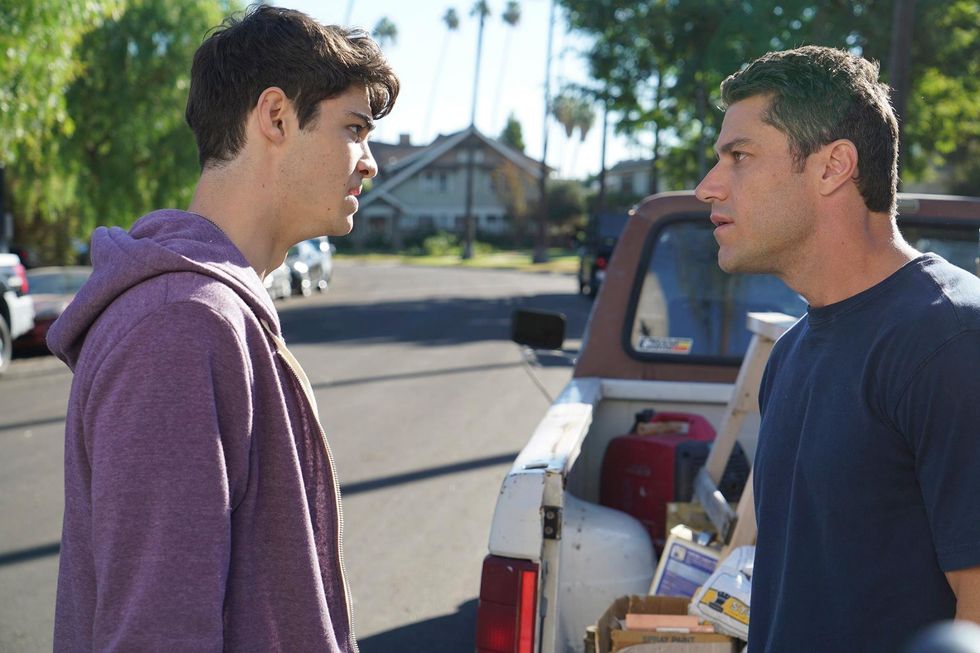
The Fosters-Facebook
When you are adopted, you often wonder what it will be like to meet a biological family member, and what their reaction might be. However, expectations are almost never a reality. In the series, Jesus goes out on his own to discover his birth father, Gabe. Thinking it will be an earth-shaking reunion of father and son, he discovers it to be quite the opposite. Jesus discovers that Gabe is on the sex-offender registry, and though he vows to never want to see Gabe again, he keeps going back to the place where he found him to get some kind of relationship out of it. It is a harsh reality that biological family members who don't know you exist may not want to be involved with you in any way, and this is a possibility that I have always had to be ready to handle.
7. Never sacrifice what you want, even if someone's running the same race as you.

The Fosters-Facebook
Though this lesson is not so much about family, it is still important to keep in mind as you walk the road of life. In the show, Mariana and her best friend, Emma are both heavily involved in STEAM club (Science, Technology, Engineering, Arts and Math) at their school, Anchor Beach Community Charter. Their friendship hits a rough patch, and when each discover that the other is applying for the same summer internship at MIT, Emma insists that Mariana drop her application. However, Mariana keeps her dreams in mind and her chin up, fighting for what she wants, and both, ironically, are denied, but attend MIT together in their college years. It is so easy to compare ourselves with siblings and friends who take a similar interest in what we love doing, but as long as you stay humble in your doings and take your time with the journey, the universe will work for you if you work with it.
8. Your past will never dictate your future.

The Fosters-Facebook
The Adams-Foster kids had very rough starts in life before Stef and Lena took them in. Mariana and Jesus were born from a drug-addicted birth mother, while Callie and Jude struggled through years of being in the foster care system, during which they lost their mother, and the results of Callie's actions to protect Jude from physical and verbal abuse put her in juvenile detention for a long time. All characters struggle with making some very premature decisions, but Stef and Lena's undying love and effort to help them learn prevent them from becoming their mistakes. My past has made me who I am today, not from the mere occurrence of it, but rather how I came to live with it and improve myself from those dark days.
Family is a term that is nearly impossible to limit to one exact definition, however, "The Fosters" seem to get it just right. Family is the group of people who accept you entirely. They look beyond your past, focus on the present, and work with you to create the best future possible for you. No matter how you came to be, the one, consistent criteria to fulfill to continue being a part of your family is to love. Love without hesitation, without fear -- but always, always -- love with all you are.

